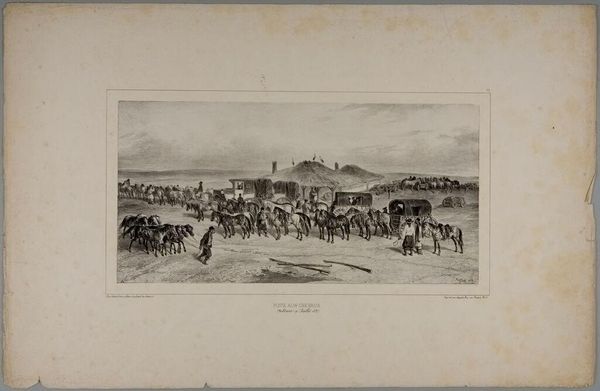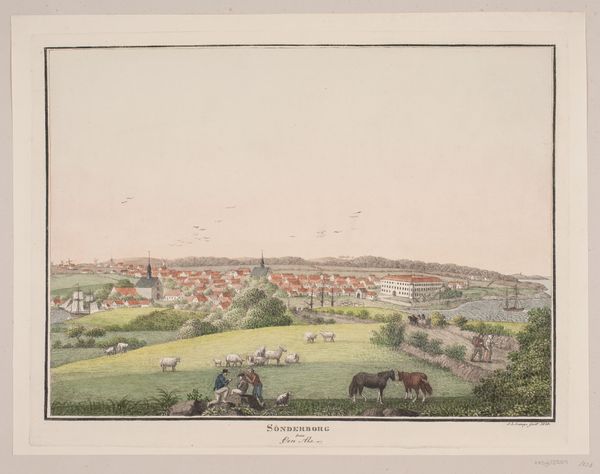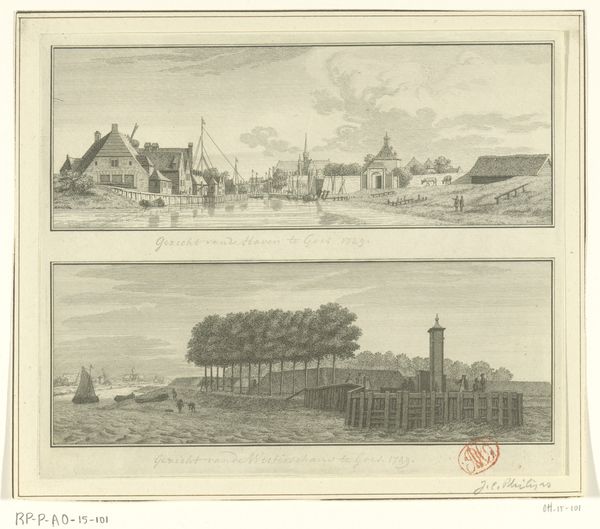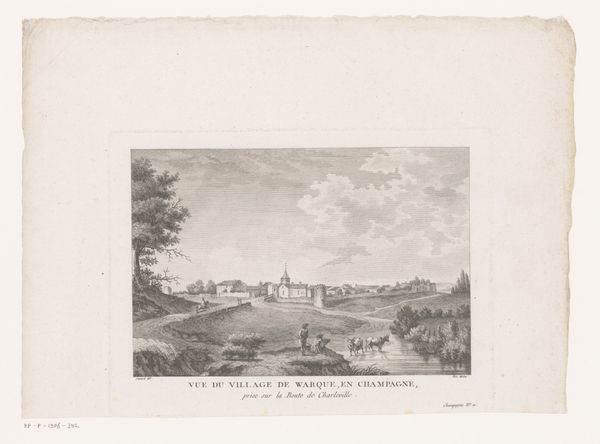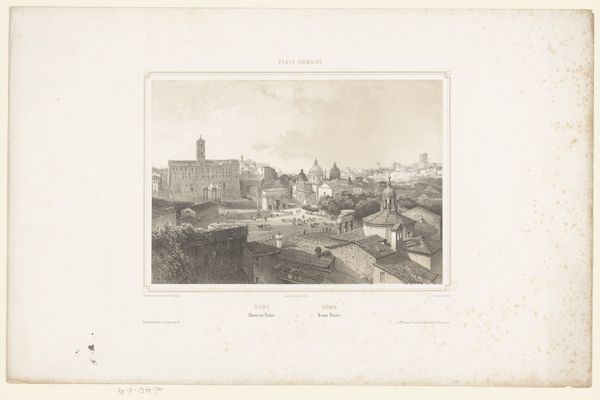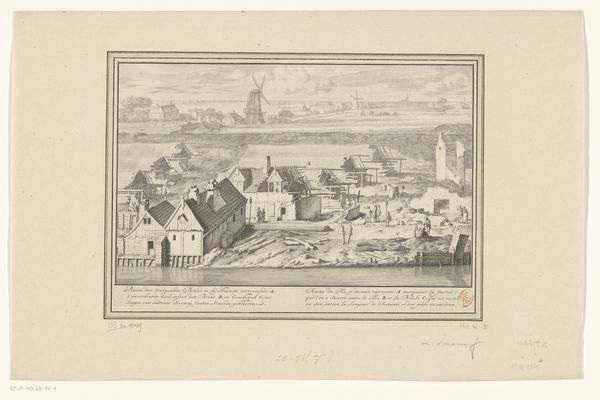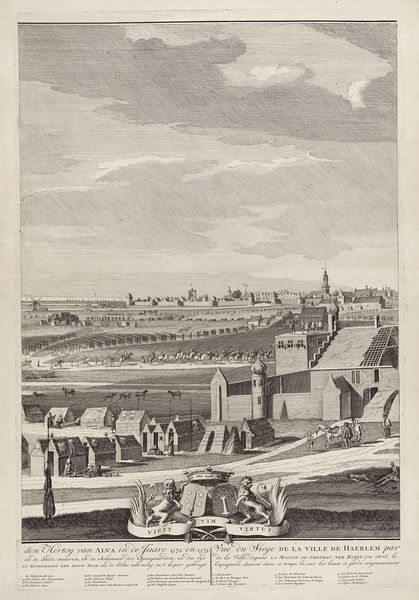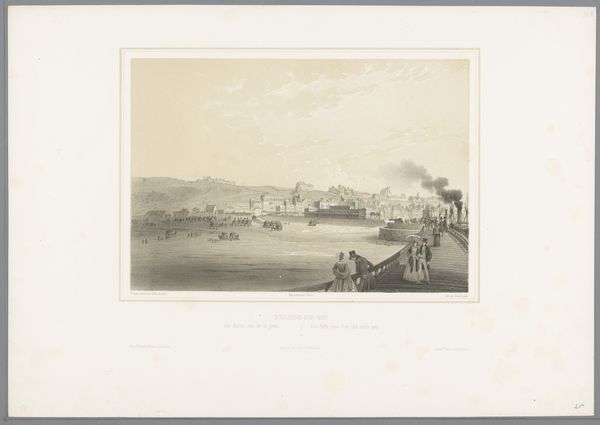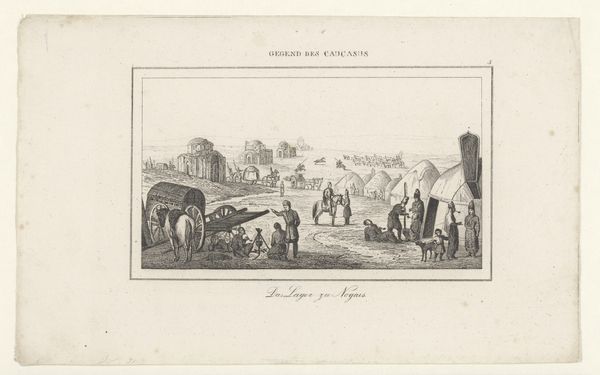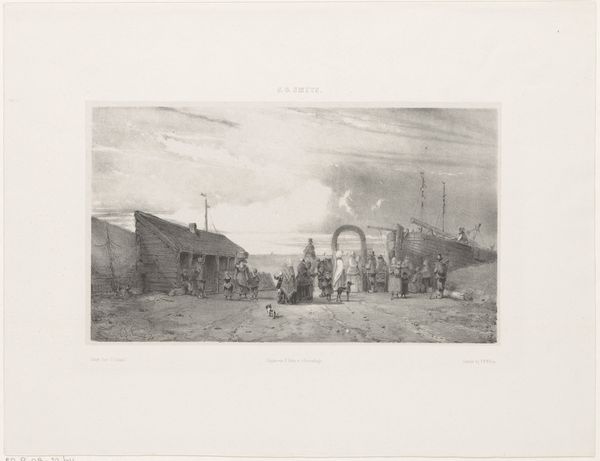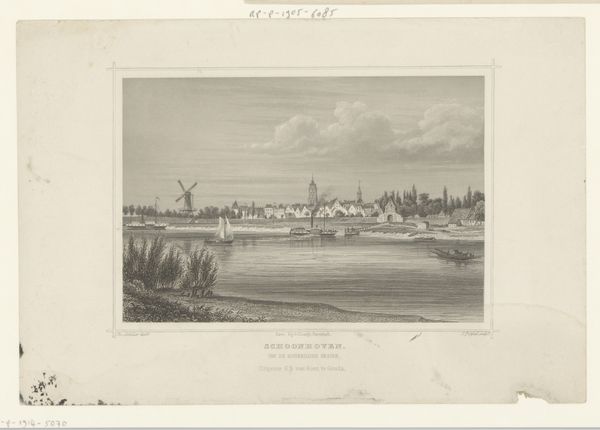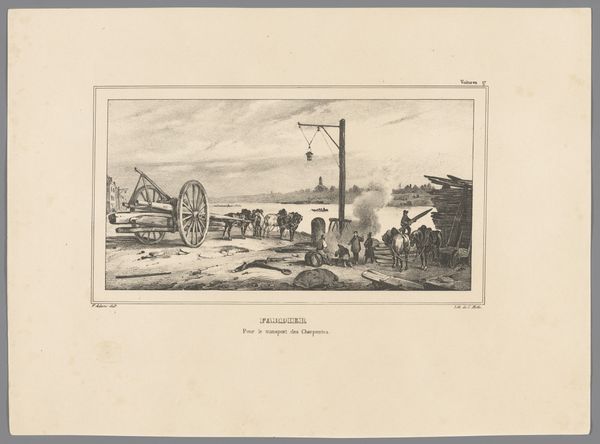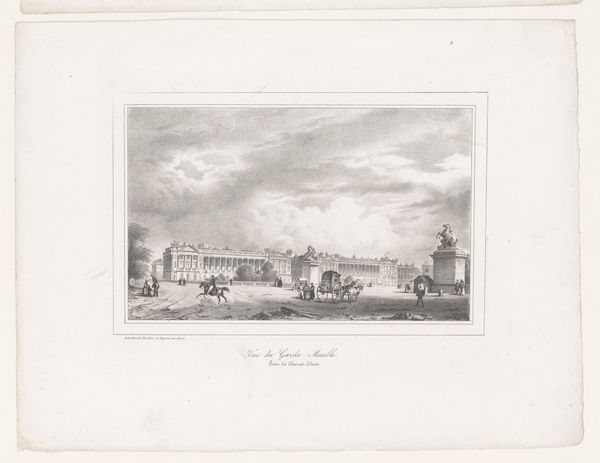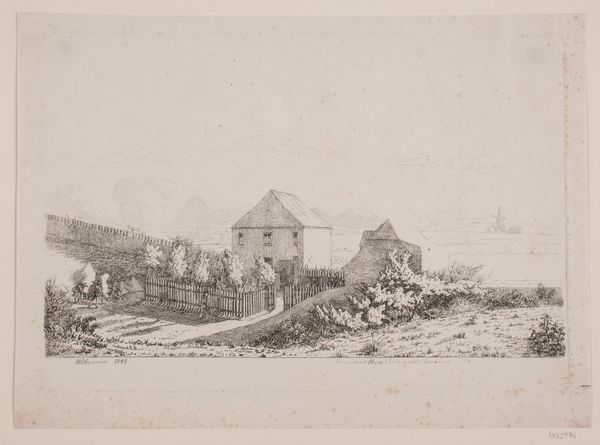
View of Yassy Taken from the Balcony of the St. Petersburg Hotel, Moldavia, July 19, 1837 1840
0:00
0:00
drawing, lithograph, print, etching, paper
#
drawing
#
lithograph
# print
#
etching
#
landscape
#
paper
#
romanticism
#
cityscape
Dimensions: 177 × 331 mm (image); 230 × 362 mm (primary support); 354 × 457 mm (secondary support)
Copyright: Public Domain
Auguste Raffet created "View of Yassy" in 1837 using lithography, a printmaking process that democratized image production. This method allowed for detailed replication, making art accessible beyond the elite. The lithographic crayon captured the textures of Moldavia. Look closely at the rough surfaces of the buildings and the subtle gradations in the sky, achieved through careful manipulation of the medium. The stark contrast between light and shadow heightens the image's dramatic effect, emphasizing the scene's immediacy. Lithography's rise coincided with industrialization, enabling mass communication and shaping public opinion. Raffet's choice of this technique highlights the intertwining of art, technology, and social change. It also speaks to the value of skilled handiwork in the service of mass production. Considering the materials and processes employed, we gain insight into the era's aesthetic values and technological advancements, bridging the gap between fine art and everyday life.
Comments
No comments
Be the first to comment and join the conversation on the ultimate creative platform.
